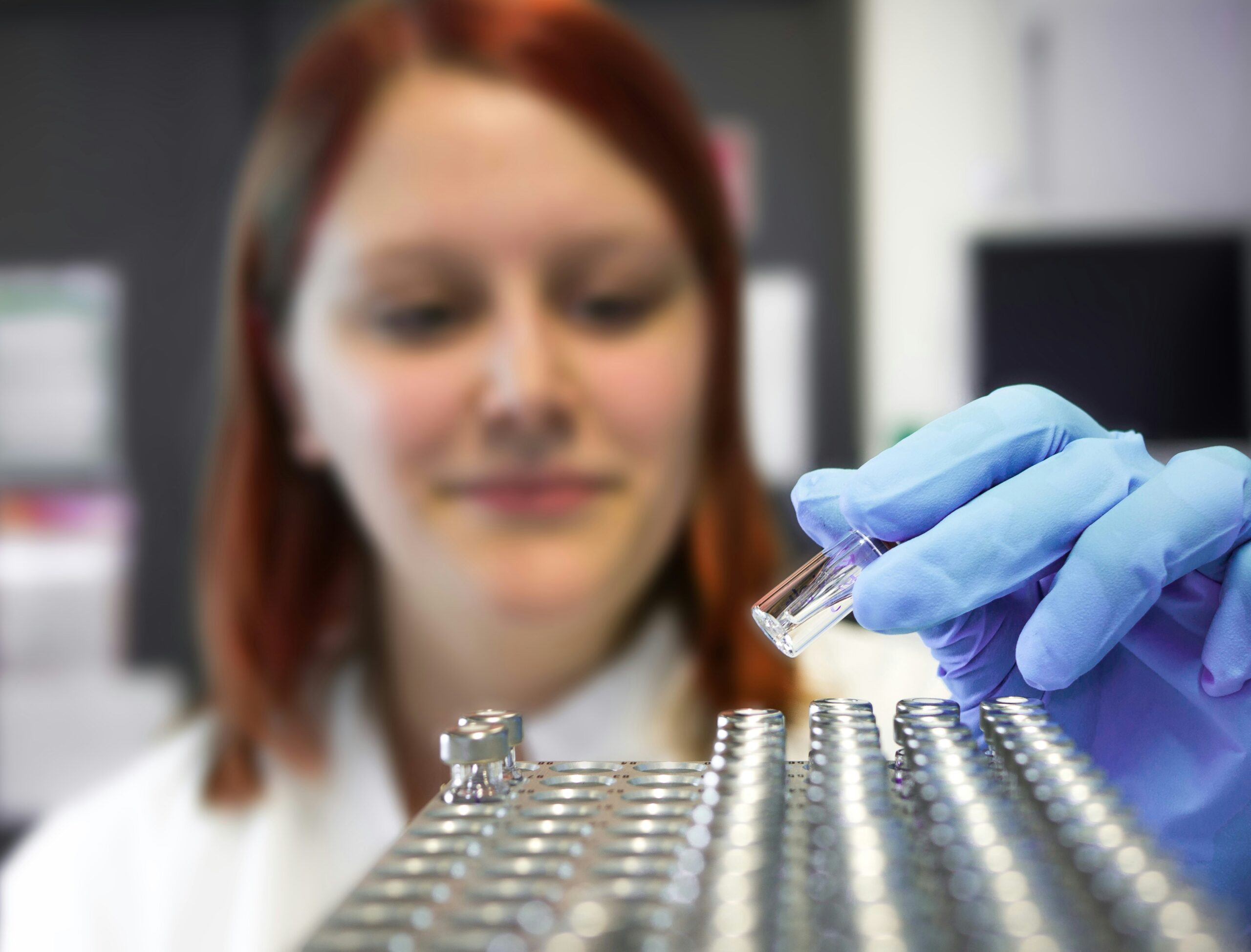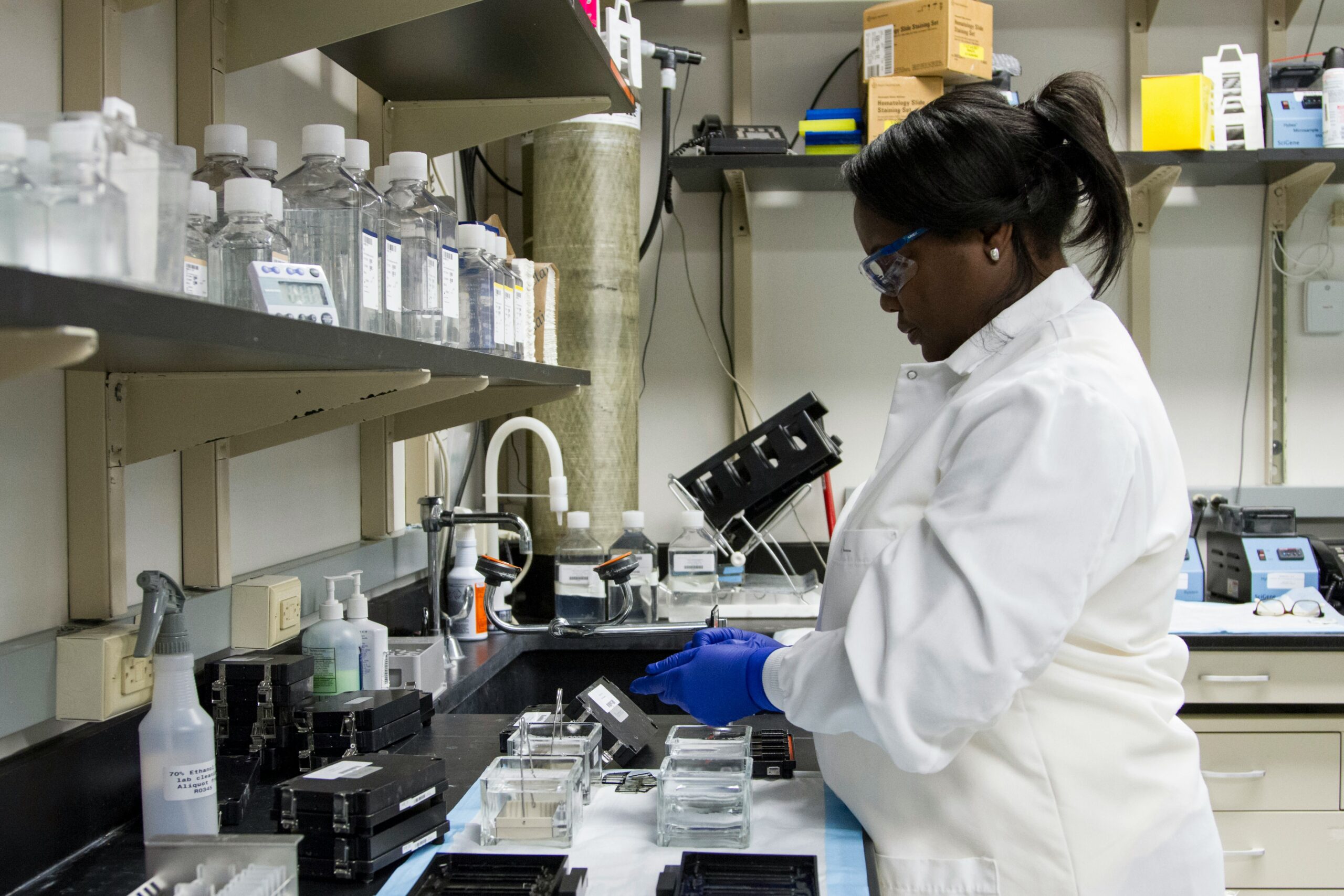- English
- DEUTSCH
- SPANISH
- FRENCH






The first thing I would say is that my job is incredibly diverse, and my focus depends on the project that I am working on at the time. As a result, my role is varied and I find it exciting to work across the academic, private and public sector and develop my understanding of how they all interact.
Something that brings me joy in my role is being able to hear from people who are genuinely passionate about their sector and how they can make a substantial impact. When interviewing for appointments in the Higher Education sector, for example, I am inspired by how potential future leaders are driven by issues such as student wellbeing, sustainability, responsibility and how they can bring lasting change to the institution. I love to see them navigate how they can address issues that are outside their personal career trajectory.
I am also pleased that we are moving away from the ‘ivory tower’ idea of academia. Science is no longer seen as an inaccessible field, and candidates applying for scientific roles now need to have that holistic understanding of their role outside of the academic part of it, to see real success.
I am tempted to say that women in science should dare to have confidence in themselves, but that suggests the new generation of women in science do not already believe in their own capabilities. That’s not the case at all. Women trying to break into the sector are tasked with demonstrating that they are just as ambitious, talented and bold as their male counterparts.
It’s also important that we break down the stigma that there aren’t abundant opportunities for women in science. In my opinion, the opportunities exist, but it’s vital that women are supported to take full advantage of them.



Identifying potential is the most important thing when seeking to increase the number of women appointed in leadership roles in the current science sector. It’s about acknowledging an individual based on their potential growth and what unique skills and perspective they could bring to a role, rather than reducing them to a CV. Otherwise there’s a risk of alienating strong candidates and favouring applicants, often male, who arguably have a better track record on paper. Sometimes the vision and ambition that an individual can bring to a role can have a bigger impact than relevant work experience.
Representation also plays a significant role in attracting more women to top jobs. If there is not a strong female presence in leadership positions, other women earlier on in their career will find it hard to envisage themselves at that level without the necessary role models. Seeing women at the top can also help to break down the mental barriers that girls may have when considering whether they are capable of a role in science, so it’s crucial that there is a pipeline of talent from beginning to end, and it’s always a personal consideration when identifying candidates in science.
A great example of an inspiring woman with a scientific background who I have recently helped to appoint is Professor Annelien Bredenoord, the new Rector Magnificus at Erasmus University in Rotterdam, who comes from a background of medical ethics. It’s so encouraging to see a young, ambitious woman in such a key role at the university and I am looking forward to witnessing the positive change I’m sure she will enact at the Institution.
Another exciting recent appointment is Professor Petra de Weerd-Nederhof, who has become the Dean of the Faculty of Science at Open University. It is notoriously rare to see a woman in the position of Dean of Science, so it’s been a pleasure to help Petra with this accomplishment.
Moreover, we had the pleasure to support the appointment of Priscilla Chomba-Kinywa as Chief Technology Officer at Greenpeace International. Priscilla has a background in Business Computing and has done wonderful things in the non-profit sector helping organisations to increase their impact through information technology and digitalisation. This appointment is important because it showcases the contribution women from the Global South can have in Executive Boards of world-renowned organisations.
While progress has been made in the industry in terms of greater representation, we can’t rest on our laurels and must continue to build on the groundwork that has already been laid.
I have always had a passion for science. Whilst I principally studied psychology and neuroscience, I have worked in institutes alongside scientists from various disciplines trying to figure out the solutions to a huge range of extraordinarily complex issues. This experience has really helped me to hone my skills in problem solving.
As a PhD student, I have also had first-hand experience working within a Higher Education institution. When I left my studies, I thought that my job opportunities were limited to the academic sector, but in reality, there are a whole host of opportunities for PhDs, including roles in executive search. I would encourage fellow female academics to consider the skills they can bring to the table and how they can apply them across a broad range of sectors – you might find your calling somewhere you least expect it!
As a woman of STEM background, it has been incredibly rewarding to see the progress already made and I am proud of my contribution to changing the narrative of what it means to be a leader in the science sector. Whilst there is still more to be done, it’s important we take a moment to celebrate the extraordinary women and girls in science paving the way for a more representative future.
Her senior level executive search experience includes Executive and Senior Academic and Administrative appointments in the Higher Education, Research and Innovation, Social Impact and Environment and Arts and Culture sectors. In addition, she has worked on multiple senior appointments in the intersection between academic organisations, arts and culture, and industry.
Emi holds a BSc in Psychology, an MSc in Cognitive Neuroscience from Utrecht University and a PhD in the Cognitive Neuroscience of Aging from the University of Groningen. Before joining Perrett Laver, Emi worked as a postdoc in Social Medicine at the VU University Medical Center in Amsterdam. Besides her academic commitments, she also represented the PhD community in Groningen and helped manage the communication platforms for a large conference.
Emi is fluent in English, Dutch & Albanian and speaks conversational Italian.